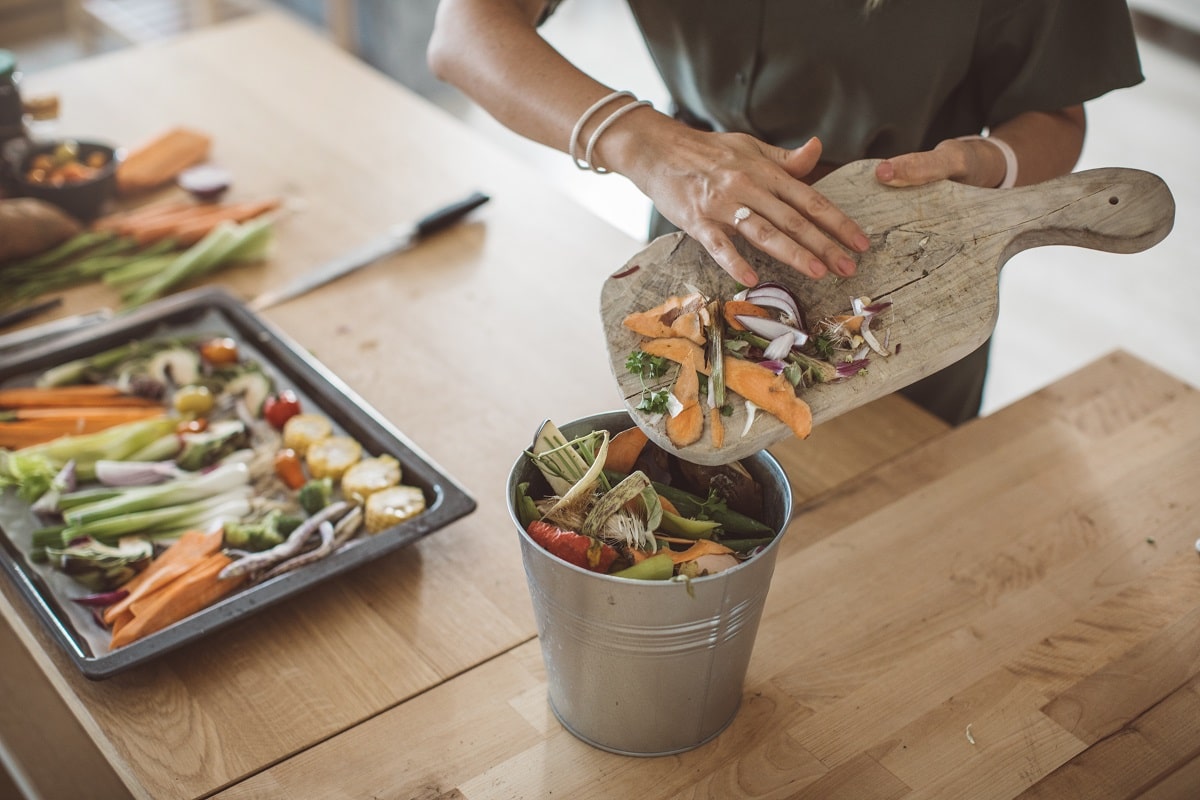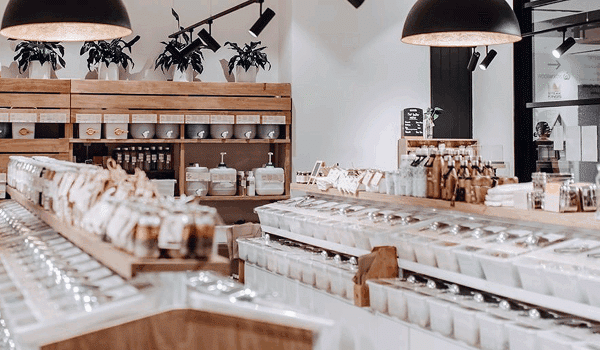Earlier this year I made the decision to move back into an apartment to be closer to the city and to the beach ( I live in Melbourne).
Before I made this move I lived in a beautiful semi-detached house in the outer suburbs. Think front and back gardens, and lots of room for activities, also…less rent.
However, it’s not so much the increase in rent I’ve been struggling to get used to (though that’s not fun either), it’s managing my waste and recycling.
Image via Getty Images

See, when I lived in a house that had lots of outdoor space, I had a huge compost bin, a worm farm, and two veggie gardens all of which really helped with food waste.
Alongside this, the local council provided each household with four bins, yes FOUR! A general waste, a plastics recycling bin, a glass recycling bin, and a green waste bin.
So, as someone who is trying to live less wasteful and more sustainable lifestyle, I decided living in an apartment shouldn’t mean I have to compromise my environmental values.
Since living in this apartment I’ve learned a thing or two about trying to live low waste so here are my tips.
SET A HOUSEHOLD GOAL (and have fun with it!)
The key to any kind of lifestyle change is to have something you’re working towards.
Are you wanting to reduce your household’s single-use waste plastic? Grow your own veggies? Reduce food waste? Use less energy? Think about what is important to you and why you want to make these changes, this “why?” will help you through the more difficult times.
Try not to focus too much on a specific end goal, this can leave you feeling overwhelmed and like you have failed should you ever slip up – which you will! Don’t worry!
And, as I said – have fun with it!
Last year my partner and I joined the Target 155 water efficiency program. This was set up to encourage Melburnians to limit water consumption to 155 liters per person per day.
Now, we actually look forward to seeing how much under the 155 liters we can get when we check our monthly water usage. If we happen to go over, then we deduct that from the next month.
START SMALL (even if it’s a tiny change!)
Small changes create big impacts.
The topic of sustainability and zero waste can often leave us feeling overwhelmed, right? Like, if you can’t do it 100% then maybe we shouldn’t do it at all. This isn’t a productive way to see real change happen.
Start with the small things around you that you find yourself throwing into the waste or recycling bin each day, week, or month.
For me, this was food waste and containers. Now each time I do a food shop, I start by making a shopping list and noting down which items I can purchase from a fresh food market or bulk food store. That way I minimise the amount of single-use plastic I am bringing into my home. Yes, it means being a little more organised, but will bring you so many benefits in the long run both environmentally and financially.
Small changes like this helped me simplify and get into a mindset which I can now apply to other areas.
For example, I changed from standard laundry detergent to a more environmentally friendly, subscription detergent. For beauty products such as shampoo and conditioner, where possible I bulk buy using refillable containers or buy bars of soap rather than bottled body wash.
KEEP IT SIMPLE
Simply put, do what works for you.
This is not about keeping up with the Joneses, don’t let your neighbour shame you about your recycling habits, they don’t see what else you’re doing to reduce your impact on the environment.
When I moved into the apartment I searched high and low for a compost that would fit on my (tiny) balcony. Turns out, that isn’t going to work for me.
So, instead I try to reduce the amount of food waste I produce. I still have a worm but in complete transparency, we don’t use it that much. We were blending (yes blending) our food waste to put it into the worm farm – but low and behold, we soon got tired of doing this.
TOP 10 APARTMENT LIVING WASTE & RECYCLING TIPS
- Reduce the amount of single-use waste such as plastic, cardboard, and tins you bring into your home. Rather than trying to figure out how to recycle it.
- Reuse containers and jars to bulk buy produce from fresh food markets or bulk food stores.
- Freeze vegetable scraps until you have enough to make a broth/stock. Rather than throwing them out.
- Look for local recycling drop off locations. If you want to separate your recycling but your apartment block or council does not provide the bins to do so. Search for your local recycling center and drop it off yourself.
- Speak to your neighbors about how you can collectively reduce your buildings’ recycling – set challenges! Make it fun!
- Check outSharewaste.com – it’s a website that connects people who wish to recycle their kitchen scraps with their neighbours who are already composting, worm-farming, or keep chickens.
- Reduce the amount of water you use. Does your local have a similar 155-liter efficiency program?
- Turn off non-essential electronics. Simple, but effective.
- If you have a balcony, is there space for a vertical garden, Bunning’s have lots of DIY online tutorials.
- REDUCE-REUSE-RECYCLE
Ultimately, it’s about finding ways to make the core ideas behind reducing your waste and recycling work for you, not trying and failing to do things that simply cannot work for your household. Starting small and making simple choices is a much easier and more achievable way to care for the planet.


